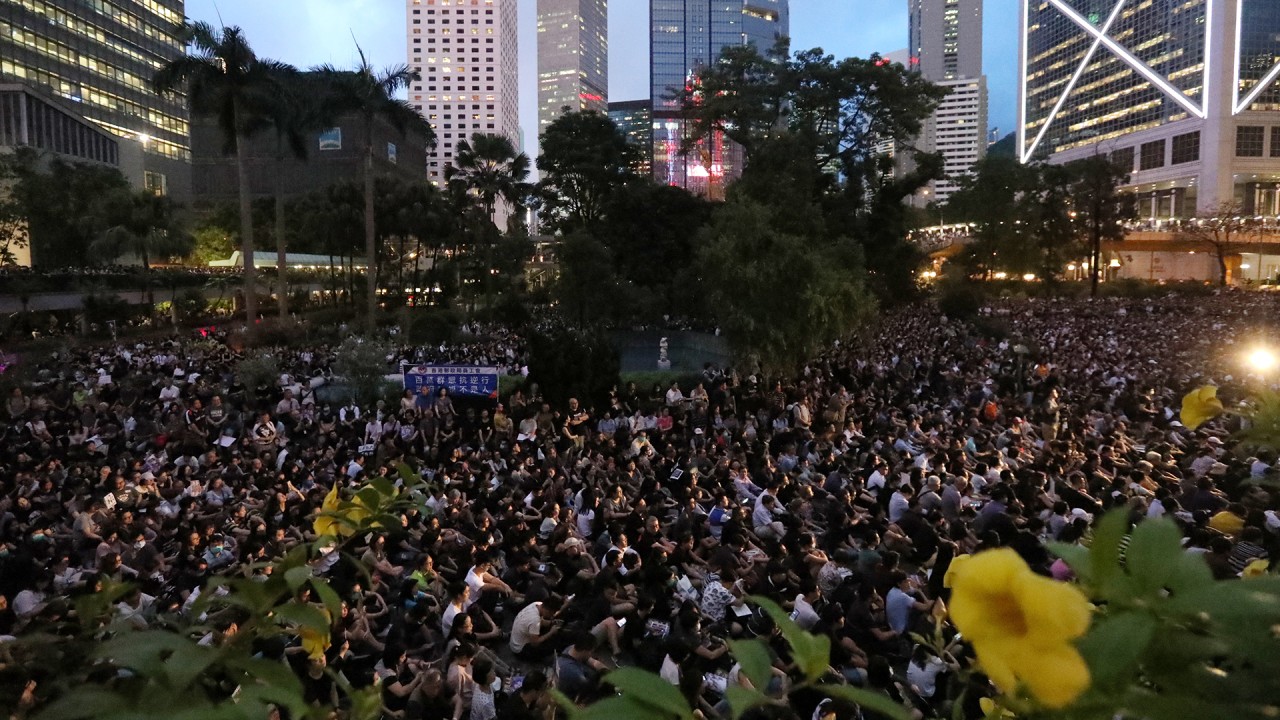
Hong Kong national security law: civil service oath of allegiance shows China’s determination to have ‘patriots governing’ city, says NPC member Tam
- Hong Kong’s sole representative to National People’s Congress Tam Yiu-chung questions if those arrested at protests can truly serve society
- New unions had ‘dealt a serious blow to the image of the civil service’
Making Hong Kong civil servants swear allegiance to the city shows Beijing’s determination to implement the principle of “patriots governing Hong Kong”, the city’s sole representative to China’s top legislative body has said.
“It reflects the central government’s determination to implement ‘patriots governing Hong Kong’,” Tam said at a forum organised by the Beijing-loyalist Bauhinia Magazine.
“Only with the implementation of patriots governing Hong Kong, can national unity and territorial integrity, and the prosperity and stability in Hong Kong, be truly safeguarded.”

05:50
What you should know about China's new national security law for Hong Kong
The principle of patriots governing the city was first raised by the late leader Deng Xiaoping.
During the fourth plenary session of the Central Committee of the Communist Party of China held in October last year, Tam said, the meeting concluded that Hong Kong should uphold “Hong Kong being governed by Hong Kong people, with patriots as the main body” to improve administration of the city’s government.
Hong Kong national security law official English version:
Since the social unrest began last year, 44 civil servants have been arrested, and 43 of those suspended.
Tam pointed to those who had been arrested and said a new union “had blatantly organised assemblies against the government”.
He added: “They have dealt a serious blow to the image of the civil service, and some cannot help but ask whether our civil service can truly serve our society?”
Traditional opposition parties lose out to localist challengers in primary
Tam believed the new requirement on swearing allegiance would help the civil service fulfil its responsibilities.
After the legislation was passed on June 30, Hong Kong’s Civil Service Bureau announced that all civil servants employed from July 1 would be required, in writing, to confirm their allegiance to the city and to uphold the Basic Law.
The bureau said the rule also applied to serving officers whose duties were deemed crucial or sensitive, although opponents expressed concern that would create “white terror” among civil servants.

03:06
Hong Kong’s civil servants, medical personnel rally against government handling of extradition bill crisis
Financial Secretary Paul Chan Mo-po brushed aside worries that the national security law would undermine the city’s attractiveness to investors, telling the forum that it was “subjective speculation without factual grounds”.
Pointing to figures that showed the Hong Kong dollar remained strong, with the Hong Kong Monetary Authority receiving inflows of US$100 billion, Chan said: “Not only has there not been a capital outflow in Hong Kong, there has also been a continuous inflow.”
At the same forum, Wang Zhenmin, a professor at Tsinghua University in Beijing and the former legal affairs director of the central government’s liaison office in Hong Kong, called the new law “mild and minimal”.
Wang said there was no reason to fear that the city would lose its freedoms, or become more like mainland China.
“With the degree of rights, freedoms and autonomy remaining unchanged, why would Hong Kong be mainlandised? It is impossible for Hong Kong to be mainlandised,” Wang said.

